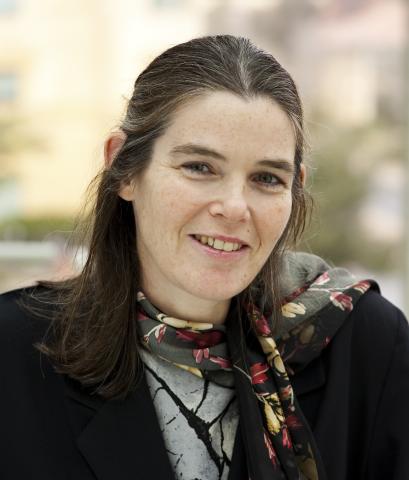event
Invited Talk by Coursera Co-founder Daphne Koller
Primary tabs
Join Coursera Co-founder Daphne Koller for “The Online Revolution: Education for Everyone,” an invited talk on the far-reaching experiment in education known as Coursera. Koller will discuss how Coursera can provide both an improved classroom experience for on-campus students via a flipped-classroom model, as well as a meaningful learning experience for millions of students around the world. Koller's talk includes the pedagogical foundations for this type of teaching and the key technological ideas that support them.
An RSVP is requested for this event: www.c21u.gatech.edu/koller.
Abstract
Last year, Stanford University offered three online courses, which anyone in the world could enroll in and take for free. Students were expected to submit homework assignments, meet deadlines, and were awarded a "Statement of Accomplishment" only if they met a high grading bar. Together, these three courses had enrollments of around 350,000 students, making this one of the largest experiments in online education ever performed. Since the beginning of 2012, we have transitioned this effort into a new venture, Coursera, a social entrepreneurship company whose mission is to make high-quality education accessible to everyone by allowing the best universities to offer courses to everyone around the world, for free. Coursera classes provide a real course experience to students, including video content, interactive exercises with meaningful feedback, using both auto-grading and peer-grading, and a rich peer-to-peer interaction around the course materials. Coursera began operations in early 2012, and as of September 2012, has 16 university partners and over 1.3 million students enrolled in its 124 courses, which span a range of topics including computer science, business, medicine, science, humanities, social sciences, and more.
In this talk, Koller reports on this far-reaching experiment in education known as Coursera, and why she and other Coursera leaders believe this model can provide both an improved classroom experience for on-campus students, via a flipped classroom model, as well as a meaningful learning experience for the millions of students around the world who would otherwise never have access to education of this quality. She'll describe the pedagogical foundations for this type of teaching, and the key technological ideas that support them, including easy-to-create video chunks, a scalable online Q&A forum where students can get their questions answered quickly, sophisticated autograded homeworks, and a carefully designed peer grading pipeline that supports the at-scale grading of more open-ended homeworks. Through such technology, Koller and other Coursera leaders envision millions of people gaining access to the world-leading education that has so far been available only to a tiny few, and using this education to improve their lives, the lives of their families, and the communities in which they live.
Bio
Daphne Koller is the Rajeev Motwani Professor in the Computer Science Department at Stanford University and the co-founder and co-CEO of Coursera, a social entrepreneurship company that works with top universities to make the best education accessible to everyone around the world, for free. In her research life, Koller works in the areas of machine learning and probabilistic modeling with applications to computer vision, systems biology, and personalized medicine. She is the author of more than 200 refereed publications in venues that span a range of disciplines, and has given over a dozen keynote talks at major conferences. Koller is the recipient of many awards, including the Presidential Early Career Award for Scientists and Engineers (PECASE), the MacArthur Foundation Fellowship, the ACM/Infosys award, and she is a member of the National Academyof Engineering. She is also an award-winning teacher, who pioneered in her Stanford class many of the ideas that underlie the Coursera user experience. Koller received her BSc and MSc from the Hebrew University of Jerusalem, and her PhD from Stanford, in 1994.
Groups
Status
- Workflow status: Published
- Created by: Josie Giles
- Created: 09/17/2012
- Modified By: Fletcher Moore
- Modified: 10/07/2016
Categories
Keywords
User Data

